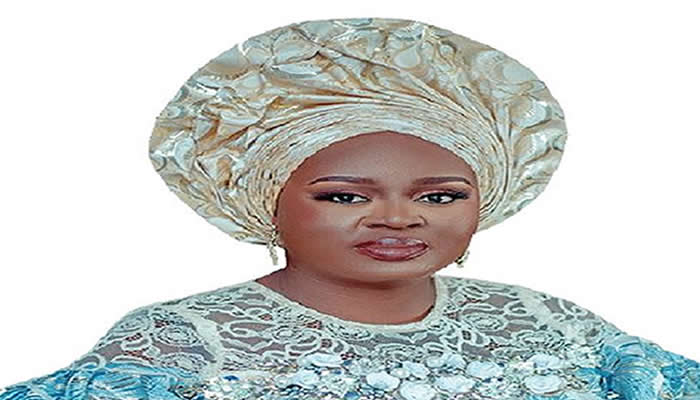The Chief Executive Officer of Jarus Homes & Investments Limited, Suraj Oyewale, shares with BIODUN BUSARI his career journey. The chartered accountant, who offers free guidance to countless individuals seeking academic and career advancement, also opens up on the controversy surrounding his marriage, and how personal challenges and public scrutiny intersected with his professional success
How has your experience been as a social media influencer?
For the most part of my adult life, I have always been active on social media, though I’m not sure if I would call it being an influencer. It all began in July 2007, during my National Youth Service Corps years when I registered as a contributor on Nairaland. This was just a few months before my 26th birthday. Since then, I have spent an average of three to four hours online daily. So far, it’s been 17 years of consistent online activities and presence.
Social media became an extension of my passion to support younger people in achieving success in academics, interviews, and other pursuits, by providing them with vital information. I see this as my contribution to making life better for others.
What helped you to gain many followers on social media?
I believe people were drawn to the information I shared because they were practical and relatable, especially my tips on academic success. Even after I started working, I continued to share career tips based on my job experiences and the interviews I attended. This built my reputation as someone who provided valuable advice on academics and career development. In 2013, I launched my blog, and from there, expanded to Facebook and eventually, other platforms like Twitter, now known as X.
How has this impacted your business?
When I started my business, many of those who had benefitted from the information I shared on social media became my first clients. They supported and patronised my business. Almost everything I ventured into succeeded because of the reputation I had built over the years. I’ve even met people in person who told me how some of the information I shared on Nairaland positively impacted their careers, particularly in finance, oil and gas, and other sectors.
Did you monetise the information you were sharing on Nairaland and social media at the time?
No, I didn’t know anything about monetising my content back then. I was simply doing it to help people. What I gained was the fame that came with it, and in the long run, that was enough profit for me.
When did you start getting financial profit from your social media content?
When I launched my blog in 2013, I was still offering content for free. However, to sustain the blog, I introduced some premium services alongside the free information. That was my first attempt at monetising my content. When I started my company, everything I did, both in content and business, succeeded due to the reputation I had built over the years. The major advantage was that my active presence on social media for such a long time brought me the bulk of my customers.
As a professional, how lucrative is the real estate business?
Real estate remains a highly profitable investment. It’s about preserving wealth and multiplying it as property values increase over time. It follows the traditional wisdom passed down by our fathers—that owning multiple property secures wealth, not just for oneself but also for future generations. Before starting my real estate business, I had already built four houses and purchased one, which significantly helped me. For example, the house I live in now, which I bought last year, has already doubled in value. If I were to sell it today, I would get double what I paid for it. So yes, real estate is a good investment in Nigeria, even if it doesn’t always require large sums of money.
How can low-income earners who can’t afford to buy many plots of land invest in real estate?
There are initiatives like group investments for low-income earners. Cooperative groups allow people to pool resources—sometimes as little as N500,000—to buy land. After holding onto it for a few years, they can sell it once it appreciates in value. It may not be widely common, but these cooperative investment opportunities exist, and they are helping people build wealth through real estate.
The problem of ‘omo-onile’, land grabbers, and developers who don’t deliver projects after an agreement is one of the banes of the real estate business in Nigeria. How can Nigerians overcome these?
The issue of ‘omo-onile’ is not as difficult as it is portrayed. Most ‘omo-onile’ don’t contest land ownership. They only ask for a certain amount of money when a project has commenced on the property or land purchased in their area. They simply demand money because you’re developing in their community. They will tell you that the land originates from their forefathers, and before proceeding with development, you need to pay them a sum of money. I did about six projects in the Ajah axis of Lagos, and for each project, I paid ‘omo-onile’ amounts ranging from N500,000 to N1.3 million. I also paid the community leadership sums ranging from N1.5 million to N5 million. These costs are factored into the final house price.
Regarding land grabbers, this can be more serious, as it typically involves two families claiming ownership of the land. In such cases, the property owner may need to appease both sides with the necessary payments. This is why my company conducts due diligence on the lands and property we buy or sell, ensuring no families are making ownership claims and there are no ongoing court cases related to the land.
As for developers who fail to deliver, although not many exist, they do pose a problem. Unfortunately, such individuals exist in society, which is why you see some uncompleted houses in Lagos and other cities. Sometimes, these projects may be delayed but will eventually be completed. However, every sector has professionals who default. My advice to Nigerians is to conduct background checks on developers before starting any business with them.
As an expert in energy policy, what is your take on increasing fuel prices since the removal of the subsidy?
I believe the subsidy had to go at some point. It had become unsustainable for the Federal Government. It was clear that the government could no longer fund it. There were two main issues with the subsidy. The first was its abuse by unscrupulous individuals and government officials. Subsidised fuel was being taken to other countries and sold at market prices, benefiting a few businessmen, which led to the government ending the subsidy. The second issue was that the subsidy had grown too large for the government to afford.
However, this removal is painful because it was one of the few subsidised commodities that benefited poor Nigerians. The problem now is that, due to the naira’s weakness in the exchange market, imported fuel will always be expensive. Relief will only come when local refineries are fully operational, providing large supplies for the local market. This might bring some benefits to Nigerians, but it won’t result in a return to the old prices. It may only slightly reduce fuel prices.
Moving away from social media, business, and economy, let’s talk about your family. The Domestic and Sexual Violence Agency in Lagos said you assaulted your wife. What happened?
I had a small family issue with my wife. We’ve lived together for 14 years without any problems. As a Muslim, I am entitled to marry another wife if I wish and have the capacity to do so. Earlier this year, I decided to marry another wife, which triggered the issue. It’s normal for women to feel a certain way when faced with this kind of development, and I did everything I could to reassure and comfort her. Unfortunately, someone close to my wife’s family, who I didn’t really know, got involved. This person appeared as an outsider but anonymously took the issue to social media to damage my reputation. I felt I had to respond because it was an attack on my character. In hindsight, I shouldn’t have reacted. The anonymous person painted me as a bad person and a wife-beater, which I am not. I ended up using some words I shouldn’t have. People with issues against me seized the opportunity to get government agencies involved.
But were the police or court involved in the matter?
Yes, of course. The Lagos police contacted us based on the false information they had received. However, it’s important to state that I didn’t assault my wife. We had a disagreement, which is natural for couples, but I never laid a hand on her. My wife and I both responded to the police invitation, and we shared our sides of the story.
The police suggested that the matter be settled in court, so we went to the Magistrate Court in Ogba. There, my wife explained the situation and made it clear that I hadn’t assaulted her, as claimed by the anonymous person on social media.
She told the court that I had never hit her. The court listened to both of us and decided to strike out the case. However, it gave us conditions before dismissing the matter. We were required to attend counselling at the Domestic and Sexual Violence Agency, and I was instructed to deactivate my social media account for one month. This was meant to prevent further posts that might provoke me to react.
Did you eventually find out who the anonymous person was?
No, I still don’t know who was behind it. Whether it was someone from the family or just an outsider who heard some things and added their own version, I couldn’t say. Even my wife didn’t know. I later realised it became an agenda for some people on social media to bring me down. They just wanted to see me suffer. It was an unfortunate experience, but I’ve come to understand that life can’t always be smooth.
Did your wife allow you to marry the second wife after the court struck out the case?
Yes, I have married a second wife. She agreed. The fuss came from people on social media who were spreading false information. We had already resolved our minor misunderstanding within weeks, long before it reached social media. As I said, it was natural for my wife to feel the way she did for a few weeks, and we both admitted we didn’t handle the situation as well as we could have. It still bothers her that people now see me as a wicked person based on false information and that some used the situation to attack me.
Our neighbours, workers, families, and others who know us well—many of whom are her family members that I’ve helped educate—were upset by this because they see our marriage as a model relationship.
They know we don’t have major issues, and they know I don’t toy with my wife and children. My wife often says I’m one of the kindest and gentlest people she’s ever known. She feels that this mismanaged, unusual disagreement shouldn’t define me. She’s unhappy about the false narrative that spread on social media. But we’ve gone back to living our lives as we always have, and we are happy.








